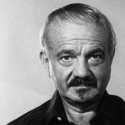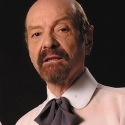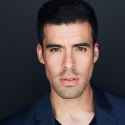Maria de Buenos Aires

|
Astor PiazzollaComposer |
Astor Pantaleón Piazzolla (born March 11, 1921, Mar del Plata, Argentina—died July 4, 1992, Buenos Aires), Argentine musician, a virtuoso on the bandoneón (a square-built button accordion), who left traditional Latin American tango bands in 1955 to create a new tango that blended elements of jazz and classical music. He was a major Latin American composer of the 20th century.
In 1925 Piazzolla moved with his parents to New York, where the family lived until 1936. He received his first bandoneón at age eight and learned to play both that instrument and the piano as a child. When the family returned to Mar del Plata in 1936, Piazzolla began playing with a variety of tango orchestras. At age 17 he moved to Buenos Aires. He formed his own orchestra in 1946, composing new works and experimenting with the sound and structure of the tango. About the same time he began to compose music for film. In 1949 he disbanded the orchestra, unsatisfied with his own efforts and still interested in classical composition. Having won a composing contest with his symphonic piece Buenos Aires (1951), he went to study in Paris with Nadia Boulanger. She urged him to remain true to himself and to continue his experiments with the tango. Henceforth he combined his two musical passions, despite much criticism from tango traditionalists. He returned to Argentina in 1955 but moved once again to the United States, where he lived from 1958 to 1960. When he returned again to Argentina, he formed the influential Quinteto Nuevo Tango (1960), featuring a violin, electric guitar, piano, double bass, and bandoneón. Though many of his 750 compositions were written for that quintet, he also composed pieces for orchestra, big band, bandoneón, and cello. His innovations, including counterpoint and new rhythms and harmonies, were initially not well received in his country, but they were greatly admired in the United States and Europe. He moved to Paris in 1974 but returned to Argentina in 1985. In Argentina Piazzolla’s new tango gradually gained acceptance, and his music influenced a new generation of tango composers and was featured during the 1970s and ’80s in film scores, television programs, and commercials. His later compositions included a concerto for bandoneón and orchestra (1979) and, commissioned by Kronos Quartet, Five Tango Sensations for bandoneón and string quartet (1989).

|
Horacio FerrerLibrettist |
Horacio Ferrer was born in Montevideo into an educated family, son of Horacio Ferrer Perez, a Professor of History, and Alicia Escurra Francini, who was 11 years older than his father and spoke four languages. He had a close relationship with his brother, Eduardo, to whom he dedicated several of his lyrics.
The family paid frequent visits to his mother’s brother in Buenos Aires, Argentina where Ferrer learnt to play tangos on the guitar by ear. Later his uncle would introduce him to the bohemian nightlife of the city.
He studied architecture and engineering for eight years but never graduated. In the 1950s, when he was in his early 20s, he helped to produce the weekly radio programme Seleccion de Tangos in Montevideo which aimed to promote new developments in tango. Out of the programme grew El Club de la Guardia Nueva which he founded in Buenos Aires in 1954 to organise concerts in Montevideo for those musicians who were helping to revolutionise tango, such as Aníbal Troilo, Horacio Salgán and particularly Astor Piazzolla and his famous Octeto Buenos Aires. Ferrer’s first meeting with Piazzolla in 1955, after Piazzolla returned from France, would prove an important turning point in Ferrer’s life.
For a period of seven years he edited, illustrated and directed the magazine Tangueando, while the tangos and poems he was writing at that time remained unpublished. Between 1956 and 1959 he studied the bandoneon and joined a small tango orchestra as a bandoneonist. He published his first book in 1959 entitled El Tango: su historia y evolución and until 1967 broadcast programmes about the history of tango for Sodre, one of the radio stations of the official Uruguayan network.
After quitting his studies on architecture he worked as an editor for supplements of the Montevidean morning newspaper El Dia. His career as a tango lyricist began with a request from the renowned Argentine bandoneonist Anibal Troilo to write lyrics for Piazzolla’s tango La última grela.
In 1967 he wrote an anthology of poems, Romancero canyengue. Upon hearing a recording of Ferrer reciting these poems, accompanied by the guitarist Agustín Carlevaro, Piazzolla invited him to collaborate on the writing of the opereta María de Buenos Aires. The work was premiered in 1968 in the Sala Planeta in Buenos Aires with Piazzolla and a ten-piece orchestra, the singers Héctor de Rosas and Amelita Baltar and with Ferrer as reciter in the role of El Duende.
Piazzolla and Ferrer now started to compose a series of tangos, with a clear social commitment, such as the well-known Chiquilín de Bachín and Juanito Laguna ayuda a su madre. In 1969 they composed a series of tangos in the form of ballads, among which stands out Balada para un loco, performed for the first time with the singer Amelita Baltar in the Buenos Aires Tango Festival . Although the performance caused a dispute to break out between supporters and opponents of nuevo tango, the work immediately became a popular success and has remained one of the most representative songs of Buenos Aires. Other songs written by the Piazzolla-Ferrer duo at this time were Canción de las venusinas, La bicicleta blanca and Fábula para Gardel, included in the album Astor Piazzolla y Horacio Ferrer en persona.
In 1970 Ferrer wrote El Libro del Tango. Arte Popular de Buenos Aires, and followed it in 1980 with an enlarged three volume edition of more than two thousand pages which is one of the most detailed studies of tango and became a standard reference work on the subject. He worked with a series of renowned tango musicians such as Roberto Grela, Leopoldo Federico and Paul Garello and with Horacio Salgán he composed the Oratorio Carlos Gardel in 1975. The following year he wrote lyrics to Loquito Mio with Julio De Caro, Esquinero with Pedro Laurenz, El Hombre que fue ciudad with Armando Pontier, Yo payador me confieso with Osvaldo Pugliese and Tu penultimo tango with Anibal Troilo. Ferrer is responsible for the lyrics of other tangos, including Balada para mi muerte, El gordo triste (written by Piazzolla as a tribute to Anibal Troilo) and El hombrecito blanco.
In 1983 he acquired Argentine citizenship, and was president of the Academia Nacional de Tango in Argentina from its foundation in 1990. He died on December 21, 2014 in Buenos Aires, Argentina.

|
John de los SantosStage Director |
Librettist John de los Santos’ first collaboration with composer Clint Borzoni, When Adonis Calls, was selected for inclusion in both Opera America’s New Works Forum and Fort Worth Opera's Frontiers showcase, then premiered under John’s direction at Asheville Lyric Opera. His latest libretto with Borzoni, The Christmas Spider, will premiere with The American Opera Project in New York City. He was commissioned by Washington National Opera's American Opera Initiative to create an original work with composer Christopher Weiss. The resulting piece, Service Provider, premiered at The Kennedy Center, and has since had over a dozen productions across the United States. Over the summer of 2020, John and composer Marc Migó were commissioned by UrbanArias to write an operatic film as part of Decameron Opera Project. The film, The Roost, was directed by John and was recently included in the archives of the Library of Congress. John has also collaborated with composers Robert Paterson, Tony Solitro, and Lingbo Ma.
As director/choreographer, John has staged the world premieres of Sweet Potato Kicks the Sun (Santa Fe Opera), Stardust (Helios Opera), Pure Country (Lyric Stage), and The Astronaut Love Show (Kraine Theater, NYC). Other productions include The Rose & the Knife, Le Comte Ory, and Otello for LoftOpera (NYC), La Cage Aux Folles for Skylight Music Theatre, La Fille du Regiment for Arizona Opera, Carousel for Ashlawn Opera, Trouble in Tahiti for Lexington Philharmonic, and Maria de Buenos Aires for San Diego and Arizona Opera. In 2015, he choreographed the world premiere of Jake Heggie and Terrence McNally's Great Scott for the Dallas Opera. His choreography has also been seen at the Washington National, Florida Grand, Philadelphia, Des Moines Metro, Utah Festival, and Austin Lyric Opera Companies.
John was the resident choreographer at Fort Worth Opera for Rigoletto, Salome, La Traviata, Amahl and the Night Visitors, and the world premieres of Frau Margot and Before Night Falls. John then made his directing debut with the company with a 2009 production of Carmen, followed by The Mikado and The Pearl Fishers. John has served on the directing faculty of the Seagle Music Colony in Schroon Lake, NY, where his productions have included Anything Goes, Crazy for You, The Medium, The Fantasticks, The Mikado, La Boheme, Guys & Dolls, Brigadoon and L'Italiana in Algeri.
Other productions include Italienisches Liederbuch for Voces Intimae, The Golden Apple for Lyric Stage, Spring Awakening and Dogfight for WaterTower Theatre. For the Dallas-based theatre company Uptown Players, choreographed the American premiere of the Pet Shop Boys musical Closer to Heaven, the regional premiere of Altar Boyz (for which John was awarded the DFW Critics Forum Award for Best Choreography), and directed and choreographed the regional premiere of Hello Again and the American premiere of Soho Cinders.

|
Scott TerrellConductor |
Conductor Scott Terrell was appointed Music Director of the Lexington Philharmonic in 2009. During his tenure, Mr. Terrell has re-invigorated and raised the artistic level of the ensemble, expanded collaborations, increased subscriptions and challenged its musicians and audiences with a greater diversity of repertoire and programs. Several major gifts were acquired because of Terrell’s artistic vision and direction resulting in the establishment of an Emerging Artist Chair and a Composer-in-Residence chair.
Maestro Terrell has simultaneously maintained a healthy schedule of recent guest conducting with the Colorado Symphony, Aspen Music Festival and School, and Philadelphia Orchestra. Future engagements include the Colorado Symphony Orchestra, and a debut leading Mozart’s The Magic Flute at the Arizona Opera.
Since 2009, many of the world’s foremost artists have performed with the Lexington Philharmonic. They have included Dame Evelyn Glennie, violinists Midori and Nadja Solerno-Sonneberg, pianists Inon Barnatan and Joyce Yang, and cellist Johannes Moser. Past projects have included a highly successful concert production of Piazzolla’s tango opera, Maria de Buenos Aires as well a live screening of Charlie Chaplin’s film, Gold Rush. Ensembles known for unique concert presentations, such as Time for Three and Eighth Blackbird, and have been regular guests. Future projects include Philip Glass’ Icarus for film and orchestra, Tan Dun’s Crouching Tiger Concerto, and a semi-staging of Osvaldo Golijov’s Aindanamar.
Terrell has led with many prestigious international organizations including Opera Colorado, Minnesota Opera, Minnesota Orchestra, Rotterdam Philharmonic, Philadelphia Orchestra, Rochester Philharmonic, Hong Kong Sinfonietta, Milwaukee Symphony, Aspen Music Festival, Spoleto Festival, Colorado Symphony, Naples Philharmonic, Eugene Symphony, Richmond Symphony, South Dakota Symphony, Kalamazoo Symphony, Wheeling Symphony, Greater Boston Youth Symphony, Amarillo Symphony, and El Paso Opera.
Maestro Terrell made his highly successful European debut with the Rotterdam Philharmonic Orchestra, leading a two-week Bernstein festival including orchestral performances as well as vocal recitals where he served as both pianist and host. Leading an extremely talented international cast, Terrell conducted selections from On the Town and West Side Story, as well as concert performances of Candide. Further demonstrating his mastery of operatic repertoire, Terrell debuted with Opera Colorado in 2002, leading an acclaimed production of Humperdinck’s Hansel and Gretel. In 2006, he received international rave reviews when he returned to Opera Colorado to lead Mozart’s Abduction from the Seraglio. He has led numerous programs at the Spoleto and Piccolo Spoleto Festivals including: Stravinsky’s Rite of Spring with the Charleston Ballet, Mahler’s Das Lied von der Erde, Humperdinck’s Hansel and Gretel and Menotti’s Amahl and the Night Visitors. Additionally, he led the Minnesota Opera’s production of The Marriage of Figaro.
Previously, Terrell served as Resident Conductor of the Charleston Symphony Orchestra where he was artistic director and conductor of the Backstage Pass Series, Pops Series, and Out of the Box concerts. While Assistant Conductor of Minnesota Orchestra from 1998-2003, Terrell conducted hundreds of the Minnesota Orchestra’s performances including Casual Classics, Pops, Family Concerts, Young People’s Concerts, Composer’s Institute, and Sommerfest Concerts. Mr. Terrell made his subscription performance debut when filling in last minute for ailing conductor, Hans Vonk. He also conducted the orchestra’s semi-staged opera productions of Bernstein’s Candide, and Menotti’s Amahl and the Night Visitors.
In the summer of 2000, Terrell was chosen as a fellowship conductor for the inaugural season of the American Academy of Conducting at the Aspen Music Festival under Music Director, David Zinman. At the conclusion of that summer, he was awarded the Aspen Conducting Prize, an award recognizing exemplary musicianship and promise.

|
Catalina CuervoMaria / Shadow Maria |
Known as the "Fiery Soprano", Colombian born Catalina Cuervo holds the distinction of having performed the most productions of Piazzolla's Maria de Buenos Aires in the world in the history of the opera.
Ms. Cuervo has performed the role of Maria over 50 times and for numerous prestigious companies including Florida Grand Opera, The Atlanta Opera, Cincinnati Opera, and Syracuse Opera to name a few of about fifteen productions.
Ms. Cuervo debuted in Detroit with much success as Frida Kahlo in the revival of the opera Frida with Michigan Opera Theater in 2015 and then with Cincinnati Opera for their 2017 season. This opera gave her a huge following in the state of Michigan and Cincinnati and both ended with all sold out shows and triumphant reviews in both cities, one even calling Frida best Opera of the 2015 season. Frida will be presented next in Miami with Florida Grand Ópera, March 2019. As a consequence, Catalina was named one of the 5 most successful Colombian Sopranos in the Opera World by the Ministry of Culture of Colombia.
Other recent roles include Adriana in the Zarzuela Los Gavilanes, and Hanna in the operetta The Merry Widow with La Fundacion Manzur in Bogota, Colombia. Before that Amapola in the Zarzuela La Leyenda del Beso and the role of Musetta in La Boheme with La Fundación Prolirica in Medellin. "Magda” in Puccini’s La Rondine as a young artist for Chicago Opera Theater.
Ms. Cuervo was a finalist at the Neue Stimmen International Singing Competition in Germany and won the Graduate Division of the Chicago Area for the Classical Singer Competition as well as being a finalist in NY for the same.
2017 was the year of Manuel De Falla for Ms. Cuervo, in May she did her Symphonic Debut with The Detroit Symphony Orchestra with the piece The Three Cornered Hat. Followed by El Amor Brujo debuting with the New Mexico Philharmonic, The Atlanta Symphony and San Louis Symphony.
In 2017 Catalina made her debut with Atlanta Opera, Mil City Opera, New Orleans Opera, The Atlanta Symphony, Saint Louis Symphony, Detroit Symphony and New Mexico Symphony.
Her upcoming performances in 2018 will be with Eugene Opera, Alamo City Ópera, Sky Media Polonia, Arizona Ópera, New Mexico Philharmonic and MUSE/IQUE Symphony Orchestra.
Besides singing, Catalina Cuervo is also a model, fitness enthusiast and dancer.

|
Luis Alejandro OrozcoPayador / Porteno / Ladron antiguo mayor / Analista primero / Vos de Ese Domingo |
An El Paso Texas native, Mexican-American Baritone Luis Alejandro Orozco has been praised for his “voluminous baritone and beautiful legato.” Luis begins the 2018/19 season with Mill City Summer Opera as Escamillo in Carmen. He also returns to Opera Santa Barbara and Anchorage Opera as Marcello in La bohème and makes his debut with Pensacola Opera as Riolobo in Florencia en el Amazonas. Orozco was a recent guest soloist with the Evgeny Svetlanov State Symphony in Moscow for Leonard Bernstein’s 100th anniversary tribute concert. Previous notable appearances include performances with, Cincinnati Opera, San Diego Opera, Opera Theatre of St. Louis, Michigan Opera Theater, New Orleans Opera, Fort Worth Opera, Florentine Opera, and Washington National Opera. He is also known as the leading interpreter in the United States for the role of El Payador in Piazzolla’s Maria de Buenos Aires.
Orozco is as graduate of the artist diploma program at the University of Cincinnati’s College- Conservatory of Music. During his tenure there, he was seen in such performances as the title role in Don Giovanni, title role in Giulio Cesare in Egitto, Il Conte di Almaviva in The Marriage of Figaro, and baritone soloist in Orff’s scenic cantata Carmina Burana. As a member of the Opera Theatre of St. Louis’s Gerdine Young Artists Program he participated in the world première of Terrance Blanchard’s jazz opera, Champion. Mr. Orozco is also an alumnus of Des Moines Metro Opera’s Apprentice Artist Program where he was seen as Escamillo in La tragédie de Carmen and Baron Duphol in La traviata. Additionally, Mr. Orozco is a winner of The Metropolitan Opera National Council Auditions in the Indiana District and Tri-State District.

|
Celeste LanuzaEl Duende |
Ms. Lanuza has received rave reviews for her portrayal of El Duende in Maria de Buenos Aires for her “tour de force traversal of the role, morphing easily” as the first female and American actor to play this role delivering all of Horacio Ferrer’s recitation by memory (Opera Today). “Celeste Lanuza cavorted, danced, and executed diverting comedic spoofs that realized many of Ferrer’s surrealist intentions… Lanuza suffused several solo scenes with electric expectation…” (San Diego Story).
She has performed this role at the San Diego Opera and is excited to join director John de los Santos for another production in this opera reprising El Duende.
Celeste holds a BFA in Dance Performance and Musical Theatre from the University of the Arts in Philadelphia where she earned an Artist Grant, and an MFA in Dance Choreography from UC Irvine where she was given a full tuition scholarship. During her time in graduate school, she was mentored by Donald McKayle and since then, restaged his acclaimed choreography Angelitos Negros, being featured in Dance Teacher Magazine. While in Philly she worked with Seabrook Opera as the featured dancer in Carmen.
Some favorite engagements include, Anita in West Side Story with the Candlelight Pavilion Theatre where she earned positive reviews and the production was awarded one of the “Best Productions of 2015” in Southern California by Broadway World. Others are, Tiger Lily in Peter Pan with Moonlight Stage Productions, Lead Pachuca in Zoot Suit and The Who’s Tommy with the San Diego Repertory Theatre, featured dancer in Guys and Dolls at the Old Globe Theatre, and PBS Film Special for Emmy Award Winning Show with guitarist Benise as a featured dancer.
Ms. Lanuza has toured throughout Southeast Asia, the Caribbean, Latin America and the United States as a guest singer in world-renowned resorts in Indonesia and Malaysia and Princess Cruises performing diverse music, dance and showcasing original choreography. She is also a choreographer who has produced works with her ensemble, Celeste Lanuza Dance Theatre. Her choreographic works have been presented at the Los Angeles Taste of Soul Festival, Laguna Dance Festival, and the San Diego International Fringe Festival among others. Her original music has been performed on TV and in theatres in Quito and Riobamba, as well as the House of Blues in San Diego and Sheila E’s E Spot in LA to name a few.
Celeste is a singer-songwriter and producer of her own music, available on iTunes and Spotify from her EP and Album entitled “Arranca!” Her music was nominated for the LA Music Awards. Ms. Lanuza is a classically trained pianist who has won competitions playing Federico Mompou, Manuel De Falla, and Isaac Albeniz and continues to play adding pop and experimental styles for theatre and dance works. Celeste passes on dance, theatre, and music teaching to high school and college students.>
Follow her music on iTunes and Spotify and Instagram @celeste_lanuza




